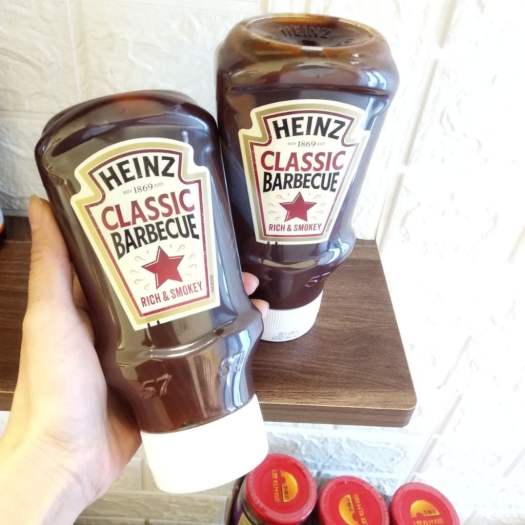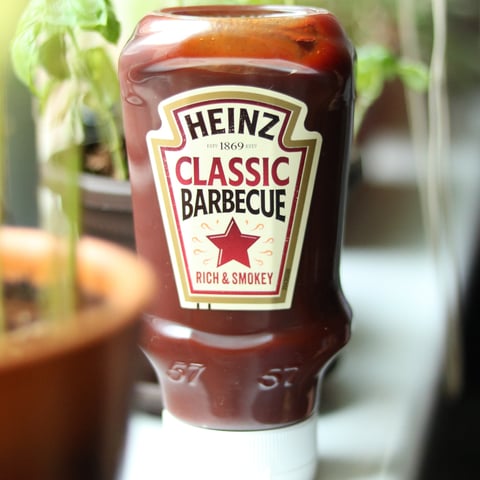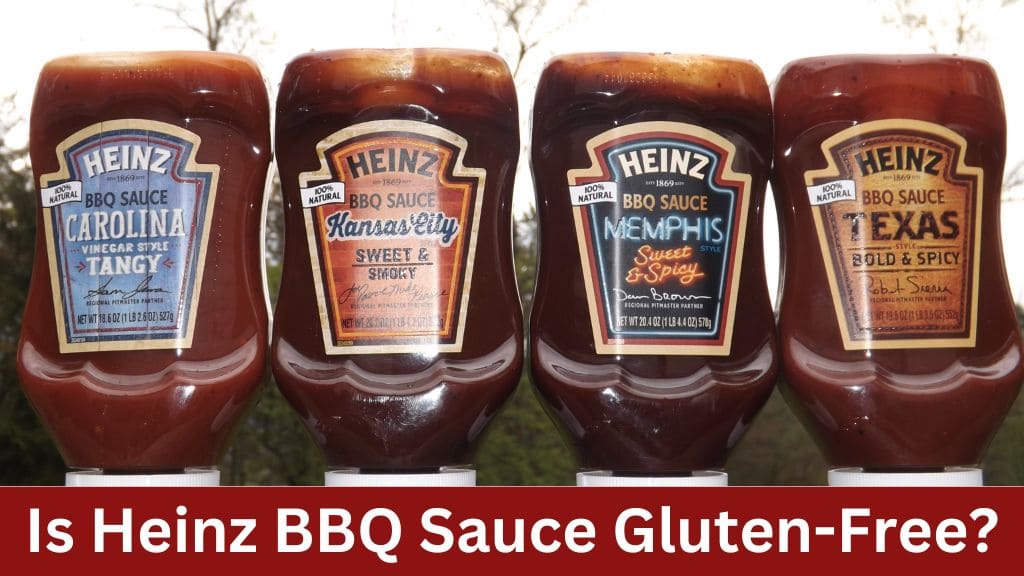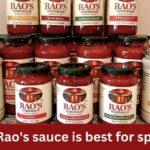In recent years, the demand for gluten-free products has soared, driven by an increasing awareness of celiac disease and non-celiac gluten sensitivity. As a result, many individuals meticulously scrutinize food labels to ensure they avoid gluten-containing ingredients. Heinz, a prominent brand known for its wide array of condiments and sauces, including BBQ sauce, often faces questions regarding the gluten content of its products. In this comprehensive guide, we delve into the question: Does Heinz BBQ sauce have gluten?
Understanding Gluten and Its Implications

Exploring Heinz BBQ Sauce

Overview of Heinz
The H.J. Heinz Company, commonly known as Heinz, is a global food manufacturer renowned for its wide range of condiments, sauces, and other food products. Founded in 1869 by Henry John Heinz, the company has grown to become one of the most recognizable brands in the food industry. Heinz is particularly famous for its iconic ketchup, which is a staple in households around the world. However, the company also offers an extensive selection of BBQ sauces, catering to diverse flavor preferences and culinary styles.
Range of BBQ Sauces
Heinz BBQ sauces are available in a variety of flavors, each designed to enhance the taste of grilled meats, sandwiches, and other dishes. From classic options like Original and Kansas City Sweet & Smoky to bold varieties like Memphis Sweet & Spicy and Texas Bold & Spicy, Heinz offers something for everyone. Whether you prefer a tangy, vinegar-based sauce or a sweeter, smokier profile, there’s a Heinz BBQ sauce to suit your palate.
Quality and Consistency
One of the hallmarks of Heinz products is their consistent quality and flavor. Heinz BBQ sauces are made using high-quality ingredients and undergo rigorous quality control measures to ensure consistency from batch to batch. Whether you’re enjoying a Heinz BBQ sauce at home or dining out at a restaurant, you can expect the same great taste and texture every time.
Versatility
Heinz BBQ sauces are incredibly versatile and can be used in a variety of ways to add flavor to your favorite dishes. Whether you’re grilling burgers, ribs, or chicken, brushing Heinz BBQ sauce onto your meat during cooking or serving it as a dipping sauce on the side can take your meal to the next level. Additionally, Heinz BBQ sauce can be used as a marinade, glaze, or ingredient in recipes ranging from pulled pork sandwiches to barbecue pizza.
Consumer Satisfaction
Heinz has a long history of satisfying consumers with its quality products and commitment to excellence. Many individuals rely on Heinz BBQ sauce to add flavor and excitement to their meals, whether they’re cooking at home or dining out. With its wide range of flavors and consistent performance, Heinz BBQ sauce continues to be a trusted choice for barbecue enthusiasts and food lovers alike.
Analyzing Heinz BBQ Sauce Ingredients

Typical Ingredients in BBQ Sauce
Heinz BBQ sauce, like most commercially available barbecue sauces, contains a combination of ingredients carefully selected to create its signature flavor profile. These ingredients typically include:
- Tomato Puree: A primary ingredient in many BBQ sauces, tomato puree provides a rich, savory base and imparts a natural sweetness to the sauce.
- Vinegar: Vinegar adds acidity and tanginess to the sauce, balancing out the sweetness of the tomatoes and other sweeteners. Common types of vinegar used in BBQ sauce include distilled white vinegar, apple cider vinegar, and malt vinegar.
- Sweeteners: Various sweeteners, such as high fructose corn syrup, sugar, molasses, or honey, are added to BBQ sauce to enhance its flavor and provide sweetness. These sweeteners contribute to the caramelization and glaze formation when the sauce is cooked on grilled meats.
- Spices and Flavorings: BBQ sauce typically contains a blend of spices and flavorings to impart complexity and depth of flavor. Common spices and flavorings include garlic powder, onion powder, paprika, chili powder, mustard powder, cayenne pepper, and Worcestershire sauce.
- Thickeners: To achieve the desired consistency and texture, BBQ sauce may contain thickeners such as modified food starch, xanthan gum, or guar gum. These thickeners help give the sauce body and prevent it from being too runny.
Potential Sources of Gluten
While many of the individual ingredients in Heinz BBQ sauce are naturally gluten-free, there are some components that may contain gluten or pose a risk of cross-contamination:
- Modified Food Starch: Depending on the source, modified food starch may contain gluten. While some modified food starches are derived from gluten-free sources such as corn or tapioca, others may be derived from wheat.
- Flavorings and Extracts: Some flavorings and extracts used in BBQ sauce formulations may contain gluten-containing additives. It’s essential to check the ingredient label or contact the manufacturer to confirm the gluten-free status of these ingredients.
- Vinegar: While distilled vinegar is typically gluten-free, malt vinegar, derived from barley, contains gluten. While malt vinegar is less commonly used in BBQ sauce formulations, it’s essential to verify the type of vinegar used in the sauce.
Labeling and Certification
Heinz provides clear information regarding the ingredients used in its BBQ sauces on the product label. While Heinz BBQ sauces may not bear a gluten-free certification, the company adheres to strict quality control measures to prevent cross-contamination and ensure the safety of its products for consumers with gluten sensitivities.
Heinz BBQ Sauce Gluten-Free Status

Official Statement
Heinz, as a reputable food manufacturer, is committed to transparency and providing accurate information about the ingredients used in its products. According to Heinz’s official statement, their BBQ sauces do not contain gluten ingredients. This statement provides assurance to consumers, particularly those with gluten sensitivities, that Heinz BBQ sauce is formulated to meet their dietary requirements.
Gluten-Free Certification
While Heinz BBQ sauces may not bear a specific gluten-free certification, it’s essential to note that gluten-free certification is not always a requirement for a product to be gluten-free. Many manufacturers, including Heinz, implement rigorous quality control measures to ensure that their products are free from gluten-containing ingredients and safe for consumers with gluten sensitivities. While a gluten-free certification can provide additional reassurance, it’s not the sole indicator of a product’s gluten-free status.
Production Practices
Heinz operates under strict quality control protocols to prevent cross-contamination and ensure the safety of its products for consumers with gluten sensitivities. This includes segregating ingredients, thorough cleaning of equipment and production lines, and regular testing to verify the absence of gluten contamination. By adhering to these practices, Heinz can maintain the integrity of its gluten-free products and provide consumers with peace of mind when enjoying their BBQ sauce.
Consumer Feedback
Numerous individuals with gluten sensitivities have reported consuming Heinz BBQ sauce without experiencing adverse reactions. This anecdotal evidence, coupled with Heinz’s official statement and production practices, further supports the gluten-free status of their BBQ sauces. While individual tolerance to gluten may vary, the overwhelming consensus among consumers is that Heinz BBQ sauce is safe for consumption by those with gluten sensitivities.
Tips for Gluten-Free Consumers

Reading Labels Thoroughly
When shopping for gluten-free products, it’s essential to read labels carefully and thoroughly. Look for products that are explicitly labeled as “gluten-free” or those that do not contain gluten-containing ingredients. Pay close attention to potential sources of gluten, such as wheat, barley, rye, and their derivatives. Additionally, be on the lookout for hidden sources of gluten, including modified food starch, flavorings, and extracts.
Contacting the Manufacturer
If you’re unsure about the gluten-free status of a particular product, don’t hesitate to reach out to the manufacturer for clarification. Many companies have customer service representatives or dedicated departments that can provide information about their products’ ingredients, production practices, and gluten-free certifications. By contacting the manufacturer directly, you can get accurate and up-to-date information to help you make informed purchasing decisions.
Exploring Alternatives
While some brands may not explicitly label their products as gluten-free, there are many gluten-free options available on the market. Explore alternative brands and products that are certified gluten-free or have a reputation for catering to gluten-free consumers. From condiments and sauces to snacks and baked goods, there’s a wide range of gluten-free products to suit every taste and dietary preference.
Educating Yourself
Stay informed about gluten-free labeling regulations, food additives, and hidden sources of gluten. Familiarize yourself with common terms and ingredients used in food labeling, such as “wheat-free,” “gluten-free,” and “contains wheat.” Keep up-to-date with the latest research and recommendations from reputable sources, such as healthcare professionals, dietitians, and celiac disease organizations. By educating yourself about gluten and gluten-free living, you can make empowered choices for your health and well-being.
Advocating for Your Needs
As a gluten-free consumer, it’s essential to advocate for your dietary needs and preferences. Communicate openly with friends, family members, and food service providers about your gluten-free diet and any cross-contamination concerns. When dining out or attending social gatherings, don’t be afraid to ask questions about menu options, ingredient lists, and food preparation methods. By advocating for yourself, you can ensure that your dietary requirements are respected and accommodated in various settings.
Conclusion
Heinz BBQ sauce does not contain gluten ingredients and is generally considered safe for individuals with celiac disease or non-celiac gluten sensitivity. However, as with any packaged food product, it’s essential to read labels carefully and be aware of potential sources of gluten. By staying informed and making educated choices, gluten-free consumers can enjoy the flavors they love without compromising their health.





